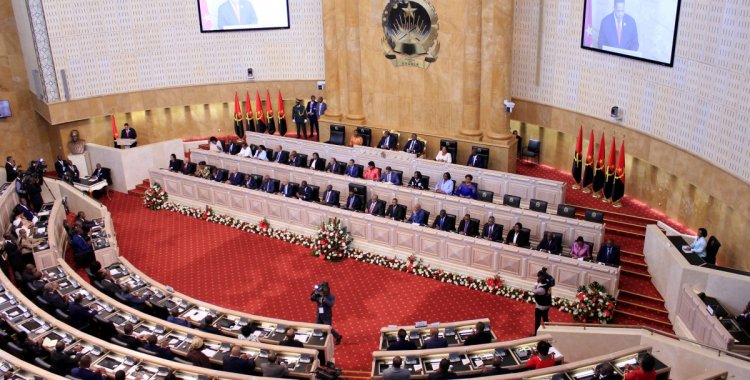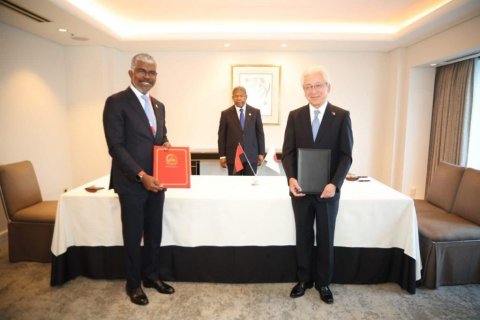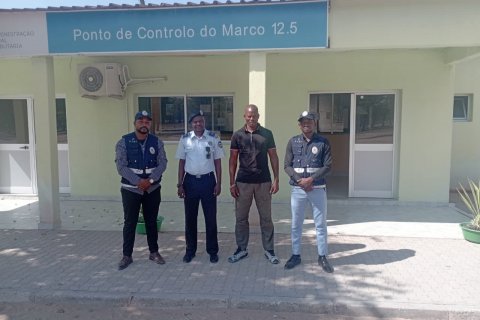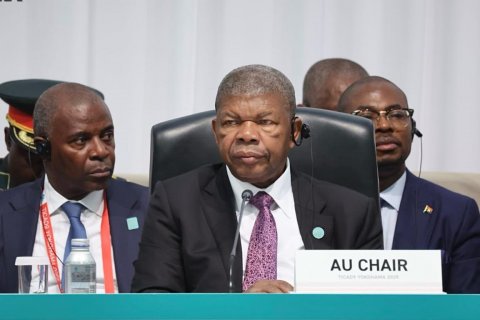The proposed law, which provides amnesty for all common crimes punishable with prison sentences of up to eight years, committed by national or foreign citizens, in the period between November 12, 2015 and November 11, 2022, was approved with 120 votes in favor, none against and 82 abstentions.
In the voting explanations, the leader of the Humanist Party of Angola, Florbela Malaquias, said that she voted in favor for two reasons, the first because it expresses the criminal policy of the humanist ideal, which safeguards the central dignity of the human person, and the second, because enable the reintegration into society and into the family of agents who committed non-heinous crimes.
“Since the interest is the social reintegration of the incarcerated, we recommend that this interest also cover aspects such as the humanization of prisons, respect for the human rights of prisoners, decent facilities and food, incentives to study, professional training, paid work in prison units, without overcrowding, legal support by lawyers paid by the State”, he said.
On his turn, the deputy of the mixed parliamentary group Social Renovation Party (PRS) and National Front for the Liberation of Angola (FNLA), Benedito Daniel, justified the favorable vote by arguing that “it is fair that our civil and military compatriots, who for any reason deviant behavior have committed crimes, coming into conflict with the law, deserve forgiveness”.
Deputy Jorge Uefo, from the majority parliamentary group of the Popular Movement for the Liberation of Angola (MPLA), regretted that the parliamentary group of the National Union for the Total Independence of Angola (UNITA) had not joined the President of the Republic in the “spirit of forgiveness, tolerance, harmony, intended with the law of amnesty”.
“The opposition still does not understand its role in the process of building democracy and will be overtaken by the historical process. During all the debate that we just had, the opposition tried to pass on the message that the amnesty law was to erase crimes of corruption, well, this is completely false”, he stressed.
The leader of the UNITA parliamentary group, Liberty Chiaka, justified the abstention, arguing that "all are equal before the law and should have the same opportunities for amnesty and pardon".
“In these terms, we agree with the amnesty, however, justice has been selective, unfair, and this law will be selective, as there are public agents, authors of white collar crimes, despite not being amnesty, will have their sentences pardoned in a quarter and citizens considered by the regime as enemies of peace, frustrated, troublemakers, young activists and others, who fight for the realization of citizenship rights are not amnestied”, he observed.
The amnesty law excludes intentional crimes resulting in death, serious offense to physical integrity, when firearms are used, trafficking in narcotic drugs and more serious psychotropic substances, human trafficking, sex trafficking, arms trafficking, its war components and ammunition.
Sexual crimes, promoting and aiding illegal immigration, embezzlement, corruption, undue receipt of advantages, economic participation in business, abuse of power, influence peddling, money laundering, terrorist financing and weapons proliferation are also excluded. of mass destruction.
The crimes of tax fraud, fraud in obtaining credit, retention of currency, forgery of documents and currency, abuse of trust, environmental and mining, usurpation of property, which result in vandalism, destruction or deprivation of public goods are also not amnefiable. , as well as crimes against the security of the State, which do not admit parole under the terms of the law.
Crimes of incitement to disorder, popular uprising, crimes against the realization of the State, crimes that cannot be subject to statute of limitations under the terms of the Constitution and the Law, property crimes whose data have not been repaired, as well as recidivists and agents of crimes that are in situation of effective concurrence of offenses are likewise not covered by the amnesty.
In relation to the agents of crimes not covered by the law and who have been convicted by a final decision, their sentences are pardoned in one quarter, except for crimes that have been intentional and resulted in death or serious harm to physical integrity, among others. .







